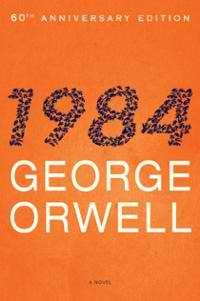Indeed a Political Act
 A happy marriage is a political act. (Note: the adjective is key in the previous sentence.) George Orwell meant as much in his dystopian novel, 1984. The totalitarian State prohibited–to the degree that they could–passionate marriages and sexual pleasure. Orwell’s main characters couldn’t vote for change but they could defy Big Brother by their adultery.
A happy marriage is a political act. (Note: the adjective is key in the previous sentence.) George Orwell meant as much in his dystopian novel, 1984. The totalitarian State prohibited–to the degree that they could–passionate marriages and sexual pleasure. Orwell’s main characters couldn’t vote for change but they could defy Big Brother by their adultery.
Their motivation, however, was strictly rebellion. Just do what you’re not allowed do to to stick it to the Man. Then you’re truly free. But in opposing bondage to the State Winston and Julia chose another bondage, the bondage of sin. They could not liberate themselves by their defiance, let alone anyone else, less because the government was so powerful and more because they chose to believe a different set of entangling lies.
Their misunderstanding, and Orwell’s himself, doesn’t change that the committed life of one man with one woman and their honoring the marriage bed is indeed a political act. It makes a statement to both neighbors and the nation. Such union is an embodied claim that says the president and politicians and police do not have the authority to make or break marriage however they desire. A male and female in covenant one-fleshedness are enfleshing theology. Husband and wife, then father and mother, are God-instituted relationships for the glory of the human race. This is a political act in that it declares that God is God, not the state. God is the lawgiver and not the people themselves or the lobby groups or big donors or liberal judges sitting on courtroom benches.
God instituted marriage as an incarnational reflection of His own Trinitarian, eternal relations as well as an illustration of the union between His Son and His Son’s Bride, the Church. How we love our wives, respect our husbands, raise our children, none of these are invisible, let alone hopeless acts. Through them we pledge our allegiance to the Father and Son and Holy Spirit.